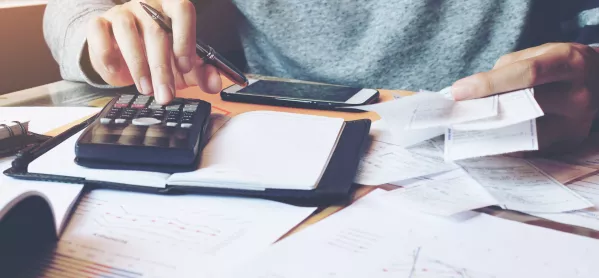How to make teacher pay go further in a recession

As if things haven’t been tough enough over the past year, it looks like the economy is in for some turbulence. With the prospect of a pay rise about as likely as an entire Year 9 class remembering their homework, now might be a good time for teachers to look at their financial situation.
All schools are supposed to teach personal finance skills to students, but how much do teachers know about good financial management? Teaching has never brought in the big bucks, so it really pays to know what you’re doing with what little you get.
Making teacher pay go further: The psychology of money
Before we get tangled up with compound interest rates, returns on investment and other arcane monetary concepts, it’s good to start with how we think about money.
Teachers are always banging on about metacognition, but do we practice what we preach? In the past few decades, the field of behavioural economics has taught us that, when it comes to financial management, most of us operate with a series of cognitive biases that prevent us from engaging in sound fiscal behaviour. In other words: where money’s concerned, we often act like idiots.
One of the most useful concepts the behavioural economists have uncovered is mental accounting. This is the way we fool ourselves into poor decisions, because we’re not honest about what we’re spending.
Watch out for any money that comes from unexpected sources, such as a tax refund, a lottery win or a bonus from your employer (yeah, right). We tend to see this as somehow different from our regular income, and it can lead to irrational decision-making, such as blowing it all on something you don’t need.
The solution is to remember that it’s all just money. If you’re struggling to pay the rent at the end of the month, that’s where your windfall needs to go, and not on upgrading to a new iPhone.
Another important psychological trick is to think carefully about why you spend money. It’s not uncommon to spend as a way of combatting stress - that’s why shopping gets called “retail therapy”.
Try working out if there are certain times when you’re more prone to extravagant spending - for example, when you’re drowning in reports and the deputy head’s been on your case because you’re late with the last round of target setting. Try an alternative way to de-stress, such as yoga, meditation, baking or pounding the heavy bag at the gym (with or without a photo of the deputy head stuck to it).
Kicking bad habits
One way to kickstart a more responsible spending regime is to take part in the annual Buy Nothing Day. Held around the same time of the year as Black Friday, and established as a direct response to our insidious consumer culture, Buy Nothing Day is a call to do exactly that - not spend a single penny for an entire day.
It’s not so much about the money you’ll save in that one day - it’s more a way of opening your eyes to how much useless dreck you buy. If you’ve got an expensive coffee habit, or buy bottled water every day, this can help reset some of those bad habits.
If you find the process liberating (and for environmental reasons, we should all be reducing how much we consume), maybe try it once a week, or even for a whole year.
Honesty is the best policy
If you recognise that your finances could do with some help and want to start getting things in order, the first steps are easy.
Write down a list of all your outgoings (make sure you’re being totally honest here) and a list of all your income, and do the maths - you need more coming in than going out.
If you have debts, you’ll need to pay them off before you start saving, as the interest rates on borrowing are always higher than anything you’ll get back on your savings.
If you do find yourself in a position to start putting money aside, do what we always tell our students, and do your research first.
Don’t get sucked in by wild claims of fabulous pay-outs and sure things. Unless you have money you can afford to lose - and let’s face it, if you’re a teacher that’s not too likely - invest in financial products that are safe.
Transfer spare cash from a current account to a savings account with higher interest. One of the best places for spare cash, as long as you can afford to tie it up for a while, is to add to your pension - you pay in, your employer pays in. It’s basically free money.
Get a side hustle
If you want healthier finances, there are really only two routes - spend less or earn more. Teachers have a few default options when it comes to the side hustle, such as exam marking (although that’s probably not going to work this year) and tutoring.
But there are more options, if you think creatively. You could even consider turning your vast experience into journalism in the educational press. I hear Tes is quite good.
Callum Jacobs is a supply teacher in the UK
Register with Tes and you can read two free articles every month plus you'll have access to our range of award-winning newsletters.
Keep reading with our special offer!
You’ve reached your limit of free articles this month.
- Unlimited access to all Tes magazine content
- Save your favourite articles and gift them to your colleagues
- Exclusive subscriber-only stories
- Over 200,000 archived articles
- Unlimited access to all Tes magazine content
- Save your favourite articles and gift them to your colleagues
- Exclusive subscriber-only stories
- Over 200,000 archived articles
topics in this article



